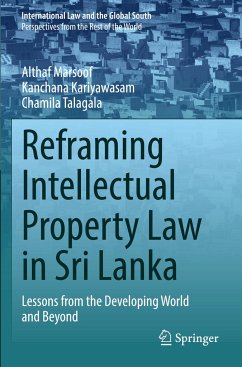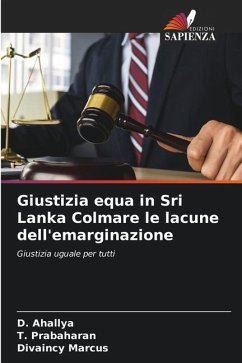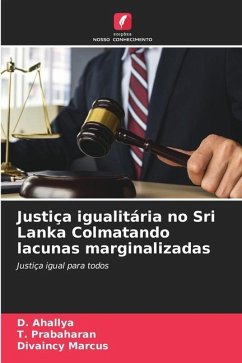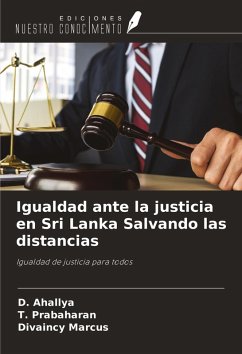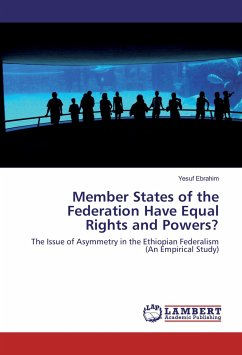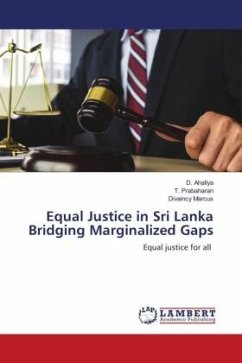
Equal Justice in Sri Lanka Bridging Marginalized Gaps
Equal justice for all
Versandkostenfrei!
Versandfertig in 6-10 Tagen
29,99 €
inkl. MwSt.

PAYBACK Punkte
15 °P sammeln!
Achieving equal justice in Sri Lanka requires a concerted effort to bridge the marginalized gaps within society. This demands a multifaceted approach encompassing legal reforms, institutional restructuring, and socio-economic interventions. Enhancing access to justice for marginalized communities, including minorities, women, and low-income groups, is imperative. This involves ensuring fair representation in legal processes, addressing systemic biases, and promoting legal literacy among vulnerable populations. Additionally, fostering dialogue and reconciliation among diverse communities is cru...
Achieving equal justice in Sri Lanka requires a concerted effort to bridge the marginalized gaps within society. This demands a multifaceted approach encompassing legal reforms, institutional restructuring, and socio-economic interventions. Enhancing access to justice for marginalized communities, including minorities, women, and low-income groups, is imperative. This involves ensuring fair representation in legal processes, addressing systemic biases, and promoting legal literacy among vulnerable populations. Additionally, fostering dialogue and reconciliation among diverse communities is crucial for fostering trust in the justice system and promoting social cohesion. Governmental commitment, supported by civil society engagement and international cooperation, is essential to effecting meaningful change. By addressing disparities in access to justice and promoting inclusivity, Sri Lanka can aspire towards a society where all individuals are treated equitably under the law, irrespective of their background or status.






